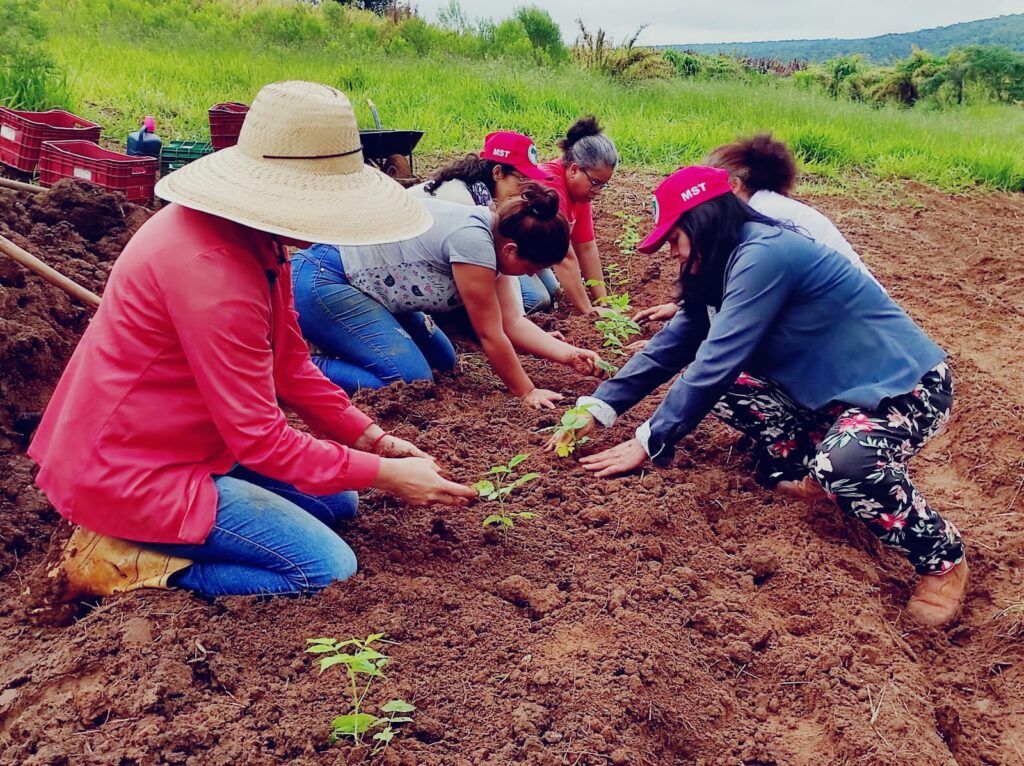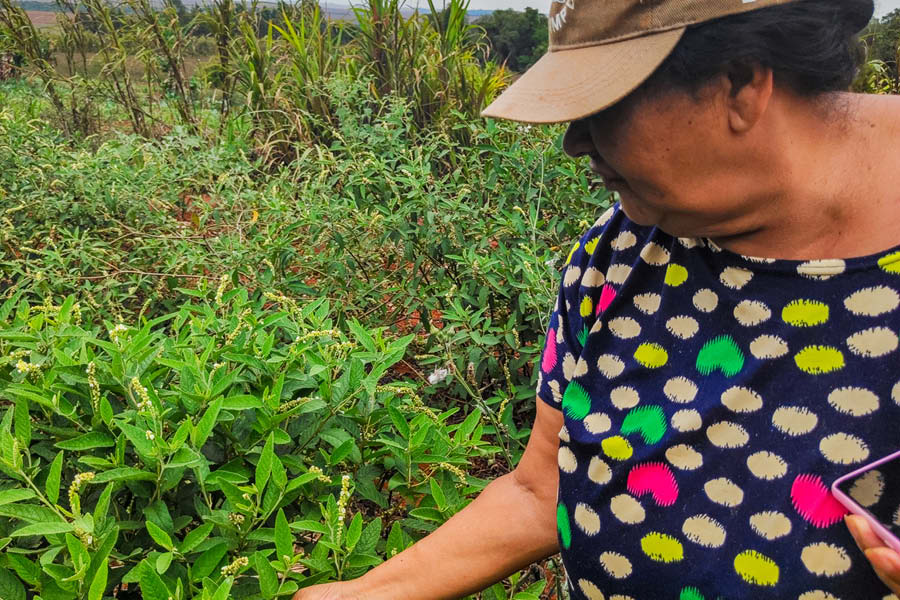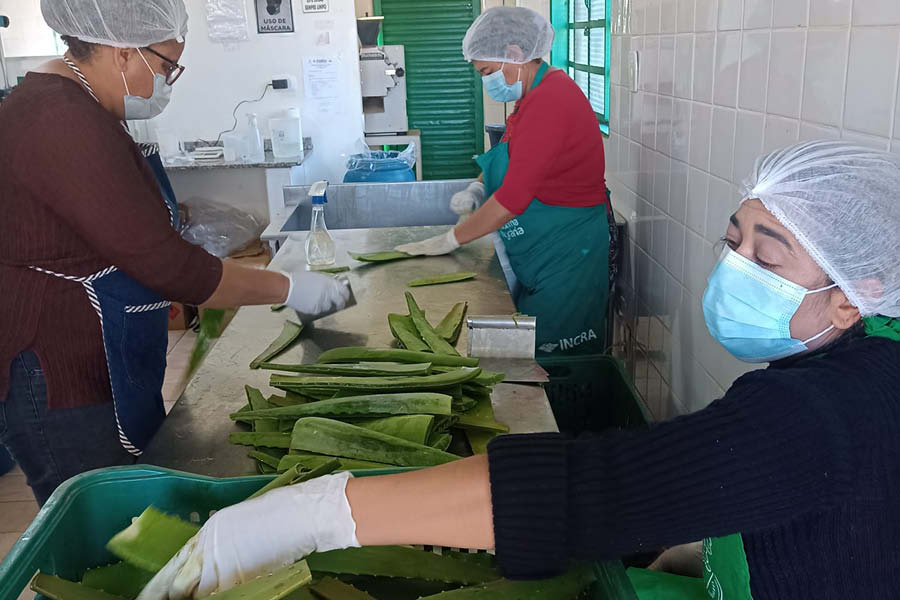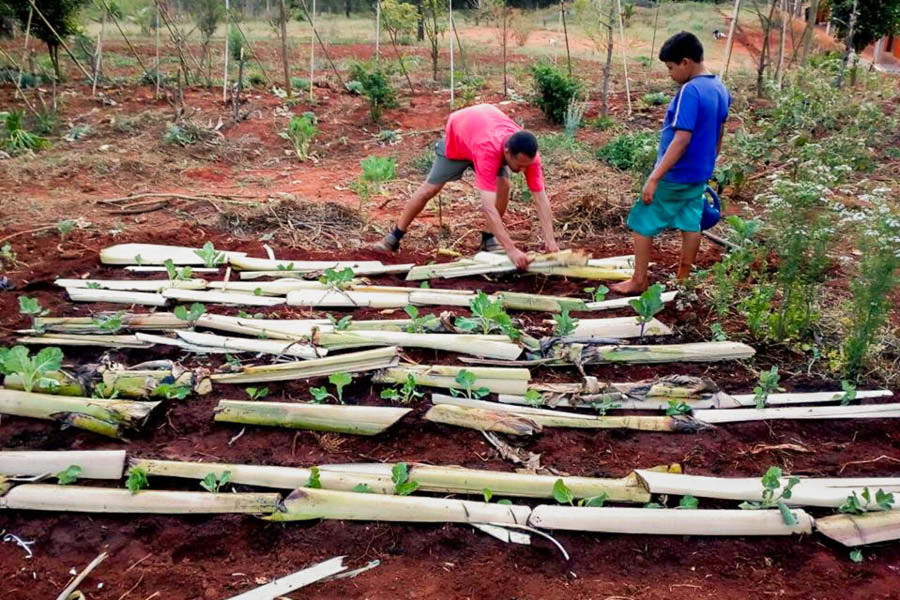The Landless Workers’ Movement (MST): Nazaré’s farm is part of the Landless Workers’ Movement (MST), which advocates for land reform and food sovereignty. For decades, the MST has fought for land redistribution to historically excluded rural workers and families. The movement challenges Brazil’s government to adhere to its Constitution, which mandates expropriating and redistributing unused land. Settlements like the one where Panela Cheia is located are the outcome of years of activism against entrenched patriarchal and colonial structures in Brazil.
These settlements are not just agricultural spaces; they are powerful symbols of resistance against a history of exploitation, social injustice, and exclusion. Through land occupations, the MST empowers marginalised communities to restore their dignity, sovereignty, and social justice. Today, the MST unites over 1.5 million people across 24 of Brazil’s 26 states making it the largest producer of organic food in the country.
A Personal Journey
Nazaré’s story is a testament to the transformative power of the MST. Like many she gained access to land, training, and community support through the movement. With limited education and few opportunities in rural areas, she initially sought work in São Paulo but faced intense competition. Eventually, she joined the MST and completed several training programmes in agroecology, agroforestry, and medicinal plants. As a co-founder of the Cooperative for the Production of Medicinal Plants (COOPLANTAS), Nazaré sits on the fiscal council, works in seedling production, and manages her own farm. Reflecting on her journey, she shares:
“I have chosen to work with agroecological practices with the dream that what I do can improve health and well-being, give hope to young people through education, and help shape a more conscious generation that cares for the environment” Nazaré, owner of Panela Cheia Agroecological Farm.



